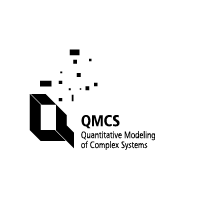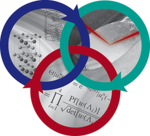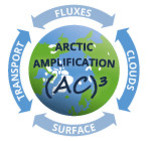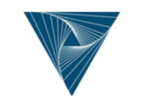Research Projects and Partners
The ideas of the Competence Area are central in many coordinated research programs and structures within the University of Cologne.
SFB 956 | Conditions and Impact of Star Formation
Observational astrophysics and laboratory astrophysics, instrumentation and modeling are applied to explore conditions and impact of star formation by looking at the physical, chemical and dynamic state of the interstellar medium (ISM). The SFB 956 contributes to fundamental understanding of star-forming processes and establishes an international interdisciplinary scientific network. Furthermore, it promotes young researchers in their scientific career.
Read more ...
SFB 1238 | Control and Dynamics of Quantum Materials
Material-based technological innovations are more often than not initiated on the basic-science level through discoveries of new concepts, phenomena, and principles governing the physical properties of quantum materials. SFB 1238 aims at exploring, understanding, developing, and utilizing quantum materials to gain deliberate control of the physical properties of these materials and to understand their dynamics, explore driven states of matter, and enable new functionalities.
Read more...
SFB 1211 | Earth - Evolution at the dry limit
Water is the defining feature of the habitable Earth; it is essential for all life as we know it. Evolution of life in extremely water limited environments, which cover significant portions on of the Earth, is not well understood. The objective of the project is to pioneer the research on the mutual evolutionary relationships between Earth surface processes and biota. The target areas are arid to hyper-arid systems, where both biota and Earth surface process are severely and predominantly limited by the availability of water.
Read more...
SFB/TR 32 | Patterns in Soil-Vegetation-Atmosphere Systems - Monitoring, Modelling and Data Assimilation
The soil, vegetation and the lower atmosphere are key compartments of the Earth, where almost all activities of mankind take place. This region is characterized by extremely complex patterns, structures and processes that act at different time and space scales. While the exchange of energy, water and carbon is continuous between the different compartments, the pertinent fluxes are strongly heterogeneous and variable in space and time. ...
Read more ...
SFB/TR 183 | Entangled States of Matter
Complex quantum systems may realize entangled states, i.e. superpositions of fundamentally distinct physical states at the same time. Quantum superpositions, however, are highly vulnerable to environmental perturbations such as radiation, noise, or other sources of quantum wave decoherence — a major challenge on the path to realizing multi-bit quantum computers. Research within CRC 183 work on corresponding protective mechanisms, their implications in quantum information theory, and the ensuing perspectives in the design and realization of quantum devices. The long term agenda of the project is to work towards the realization of solid state quantum information devices.
Read more...
SFB/TR 191| Symplectic Structures in Geometry, Algebra and Dynamics
Since their inception, the study of symplectic structures and the applications of symplectic techniques (as well as their odd-dimensional contact geometric counterparts) have benefited from a strong extraneous motivation. Symplectic concepts have been developed to solve problems in other fields that have resisted more traditional approaches, or they have been used to provide alternative and often conceptionally simpler or unifying arguments for known results. Outstanding examples are property P for knots, Cerf's theorem on diffeomorphisms of the 3-sphere, and the theorem of Lyusternik-Fet on periodic geodesics.
Read more...
SFB/TR 172 | Arctic Amplification
The Transregional Collaborative Research Centre TR 172 is a joint project by the University of Leipzig (coordinating university) as well as the University of Bremen and the University of Cologne. It provides a unique research environment to study the increase of Arctic near-surface temperature during the last decades, which is commonly referred to as Arctic Amplification, from complementary viewpoints, bridging various observations and modelling approaches.
Read more...
Cluster of Excellence | Matter and Light for Quantum Computing (ML4Q)
The aim of ML4Q is to develop new computing and networking architectures using the principles of quantum mechanics. Computing and networking power beyond anything classically imaginable would make quantum computers powerful tools in key areas such as materials design, pharmaceutics, or artificial intelligence. Quantum communication could be made effectively secure.
Read more...
Cluster of Excellence | Cellular Stress Responses in Aging-Associated Diseases (CECAD)
Aging affects everyone, virtually from the minute we are born. This emphasizes the societal relevance and scientific complexity of the research being done at CECAD. More and more people are living longer. In our aging society, the expected burden on the domestic economy for rising healthcare costs is immense. Research by CECAD at the University of Cologne into the causes of aging and age-associated disorders is at the interface of this fascinating dynamic field.
Read more...
Geoverbund ABC/J
The Geoverbund ABC/J is the geoscientific network of the Aachen-Bonn-Cologne/Jülich research area. Under this umbrella, the geoscientific institutes of the universities Bonn and Cologne, the RWTH Aachen and the Forschungszentrum Jülich established a cooperation. The research focus of Geoverbund ABC/J is on the investigation of the dynamic earth-human system. Together, the researches of the ABC/J-region aim at trying to identify and solve current global challenges in the fields of evolution of life and earth, environmental dynamics, georesource management and georisk assessment.
Read more...
QM2 | Quantum Matter and Materials
The Key Profile Area III: Quantum Matter and Materials (QM2) is closely linked to CA3. Within QM2, researchers of mathematics, experimental and theoretical physics, inorganic and physical chemistry and crystallography collaborate to unravel the properties of quantum matter. The mathematical structures underlying topological matter, the prospect to functionalize “Dirac matter” like graphene, new states of matter arising from spin-orbit interactions, quantum matter far from thermal equilibrium, the use of nanostructured materials for wide ranges of applications, and the development of organic electronics are some of the research topics important for QM2.
Read more ...
CDS | Center for Data and Simulation Science
Data structures of immense size and complexity ("big data") play an increasingly important role across a wide range of scientific disciplines. The gain of information from big data requires approaches exceeding the limits of classical statistics and serial computing. Instead, novel tools for the storage, processing, visualization and analysis of data using high-performance computing systems are required. The UoC Center for Data and Simulation Science (CDS), founded in January 2018, addresses these challenges by bringing together scientists from the domain sciences (e.g. natural sciences, life sciences, economics, social sciences, humanities etc.) and researchers with a strong background in data science and scientific computing.
Read more ...
Previous Projects
Systems Biology of Ageing Cologne - Sybacol
The Sybacol initiative merges the work of life scientists involved in ageing research with that of theoretical physicists, mathematicians and bioinformaticians at the Faculties of the Natural Sciences and Medicine of the University of Cologne and at the Max Planck Institute for Biology of Ageing ...
Read more ...
SFB 608 | Complex Transition Metal Compounds with Spin and Charge Degrees of Freedom and Disorder
Observational astrophysics and laboratory astrophysics, instrumentation and modeling are applied to explore conditions and impact of star formation by looking at the physical, chemical and dynamic state of the interstellar medium (ISM). The SFB 956 contributes to fundamental understanding of star-forming processes and establishes an international interdisciplinary scientific network. Furthermore, it promotes young researchers in their scientific career.
Read more...
SFB 680 | Molecular Basis of Evolutionary Innovations
Chance and necessity in evolution are fundamental themes of biology. Adaptation is the deterministic part of this process: driven by natural selection, populations establish functional changes in response to changes in their environment and ecology. How can we understand these dynamics starting from their molecular basis, which lies in genes and their interactions? How do adaptation and functional innovation take place amidst stochastic changes of molecular evolution? How is micro-evolutionary adaptation linked to macro-evolutionary differences between species? These are the central questions addressed by CRC / SFB 680.
Read more...
















